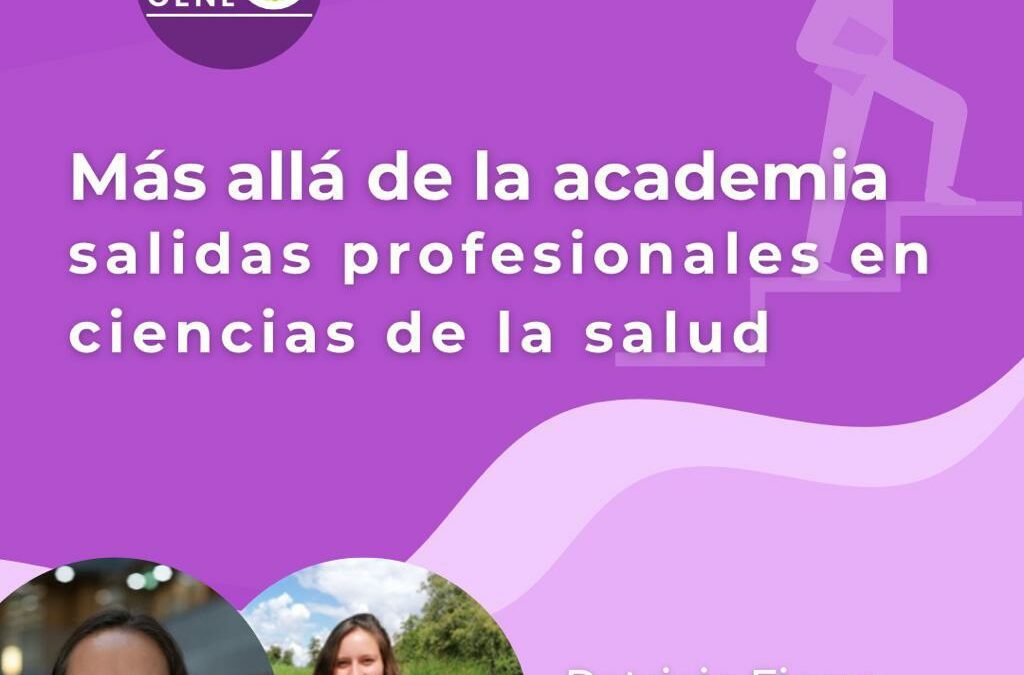Whether or not to do a PhD in academic research is a choice faced by almost all of us during our studies and throughout our careers. It seems to be expected of us, especially when you are doing an internship in a lab and your supervisor expects you to stay and continue. However, is this your only option or are there options outside the academy that better suit your priorities?
- Do I want to do a PhD in academic research?
First of all, let’s talk about whether or not a PhD is the right choice for you. Do you like research, independence, and want to be in charge of your own project? If so, read on. If you want to work at university and stay in academia and public research, a PhD is a must, but it can also be highly recommended if you are looking to enter a senior position in industry or governmental organisations. Perhaps at some point in your career you are undecided whether or not you want to pursue academic research. However, in either case, doing a PhD can be very advantageous for your career prospects. But there are many more factors to consider.
- Professional priorities. As we have said, a PhD makes it easier to access positions of responsibility later on, both in academia and in industry, and in many cases it is a requirement. Therefore, if you are an ambitious person who wants to go far in the field of pharmaceutical research or industry, a PhD can help you. For example, to get higher positions and better salaries in industry. But, of course, there are also possibilities to grow in industry without being a doctor.
- is the perfect time to publish articles and meet researchers in your field, forming a network of contacts through conference attendance, which can be very useful in the future, whatever your goal, contacting researchers or companies and preparing your CV. The PhD is also a good time to gain international experience. In many laboratories there are people of many nationalities, English is spoken and you will be able to travel to other countries for stays or to attend conferences, so you will be able to improve your English and get to know other places. And finally, for us, the main reason for doing a PhD is the desire to advance science and the passion for research. A PhD can be hard, but also very rewarding, both professionally and personally. The first successful experiment, the first presentation, the first conference, the first published paper, the first thesis defence are milestones to be proud of, and unique opportunities for growth.
- Personal priorities. Free time, working from home, work-life balance, social interaction, family… are key factors when making this decision. We all know that during a PhD the working days are long, often including weekends and holidays, and it is difficult to disconnect from work, as you are in charge of your own project. From our point of view, this may be the most decisive factor when making this decision, as you are going to invest 4 (or even more) years of your life in this stage. In many laboratories, there is increasingly the possibility to have a better work-life balance, but sadly, the reality in many places is still far from the 40-hour working week. In terms of mental health, this is another very important issue to consider, as it is an issue that affects many PhD students, as it is a stressful time, with a lot of responsibility and can be lonely, due to the lack of free time and being in charge of your own project. You should consider these factors before making the decision, and if you go ahead, look for ways to manage it as well as possible. For example, by talking to colleagues, your thesis supervisor or mental health programmes at the university.
And finally, speaking of salaries, in universities in the Netherlands it is between 2500 – 3200€ per month, depending on the year you are in. Holidays are the same as in any other profession (25 days per year with 8% end-of-year and 8% holiday bonus). In addition, it usually includes taking classes, courses, supervising students, attending and presenting at conferences… The timetable is usually flexible and you can organise your hours as you wish, so you can combine it with hobbies, sports or even Dutch classes.
- Do I want to go into industry?
You have read about the PhD but, although you liked the research part of it, you are not convinced that you want to work in an academic environment for the rest of your life. Or maybe your personal and academic priorities simply don’t match the expectations of a PhD and academia. In this case, industry may be for you. Here, workers tend to be more open to creating a community at work. In addition, a pharmaceutical/biotech company offers science professionals job options that go beyond pure research. These could be divided into two branches: medical affairs and research.
Research
- Professional priorities. The main objective of in-company research is to nurture your interest in laboratory work. The main difference with a PhD is that in a company, the focus is on innovation and product improvement, not on understanding the basic functioning of events. This, therefore, greatly reduces the possibility of publishing scientific articles. Industrial research can be entered with or without a doctorate, in contrast to the more responsible positions in academic research, which usually require a doctorate. For entry-level positions in industry, a bachelor’s or master’s degree is usually sufficient. In fact, some companies prefer to hire recent graduates to teach them their own research methods. For more senior, responsible, and usually better paid positions, a PhD and/or years of experience in similar positions are often required. Once hired in an industry, the possibilities for growth and higher positions are very high.
- Personal priorities. Working hours are more standardised, so you can expect less overtime than in academic research. However, working hours are more closed, which gives less flexibility. Despite this, it is often easier to balance your personal life with your personal life. However, this will depend on the type of research you are doing and where you are in your research. Sometimes, when working with living organisms, you have to take into account that they follow their own rhythms and you have to adapt. As for the salary, it is between €2300-6400 in the Netherlands. The concrete values will ultimately depend on the company you work for and the position you hold. Finally, as stipulated by the Dutch government, you will be entitled to an annual number of holiday hours of 4 times your weekly working hours.
Medical affairs
- Professional priorities. In the medical affairs department, you will be the link between the research and R&D department and the marketing department. This means that you will be the person who communicates, in a way that is accessible to a non-scientific audience, how the product works. This department will be the right one for you if your professional priority is not to work in the lab, but to convey the scientific message of your company’s products. This type of work also gives you the option of rapid professional growth within the company. This department will not give you the opportunity to publish scientific articles, but you will be able to attend networking events and work in an interdisciplinary way, in a middle ground between various departments of the company.
- Personal priorities. This type of work is completely different from research. The level of work-life balance is usually very good, usually better than in research positions, as the schedules are very standardised. Of course, there are often targets and deadlines to be met, which can be stressful at times. However, in our opinion, since everything is within one’s own controllable variables, it is somewhat easier to prevent than in the research department. The other conditions, in terms of salary, holidays and other additions, are comparable to those already mentioned in the industrial research section. Of course, the concrete numbers depend on the company and the position you are in. In the medical affairs department, the interpersonal relations are much more remarkable than in the research area, both academic and industrial. This type of work involves highly developed communication, information analysis and networking skills.
We hope this summary has helped you to get some clarification on whether to do a PhD or look for a job in industry directly. Both options have advantages and disadvantages, so ultimately it will depend on your professional and personal priorities, tastes and skills. And there’s always the possibility of trying one option and then changing direction if you realise it’s not for you, so don’t worry – the world of work is much more flexible than it seems. And if that doesn’t quite convince you, we’ll be talking about other career paths outside academia and industry in the near future, so stay tuned for more posts!
Can you help us to become more? Become a member and participate. Spread our word on the networks. Contact us and tell us about yourself and your project.

beba arlanzon
Master student in Biomedical Sciences, Neuroscience and Public Health International
She holds a degree in Philology and a PhD in Translation from the University of the Basque Country. She is currently in a period of professional transition oriented towards communication.

Cristina Boers Escuder
Biochemist (UAM). Neuroscience MSc Student at VU Amsterdam
I am Cristina, half Spanish, half Dutch. I have lived in Madrid almost all my life, and I studied Biochemistry at the Autonomous University of Madrid. There I became fascinated by neuroscience, so I decided to come to Amsterdam to do the Master in Neuroscience at the VU and to explore the other part of me. It has been an amazing experience as I have met super interesting people and learned a lot. I am also the director of the activities and events department of Women in STEM. Next year, I would like to stay here and do a PhD studying astrocyte-neuron communication, my passion within neuroscience.

